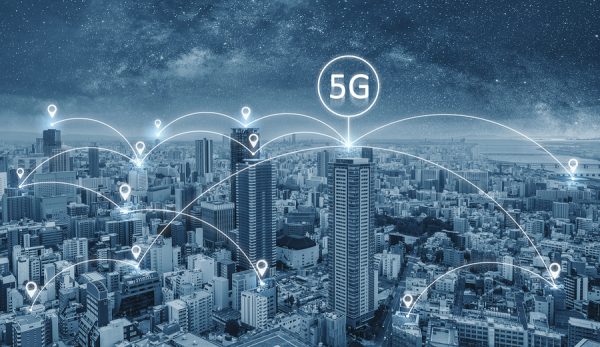
Verizon launched 5G Home in specific cities back in October 2018. Throughout 2019, plans are to keep expanding 5G Home to new cities and bring it to mobile users. To do this, networks must be upgraded.
As 5G rolls out across the nation, people need to upgrade to devices that are capable of using 5G. This means a wealth of 3G and 4G phones will become obsolete.
The History of Mobile Phones
When there’s an advancement in technology, people flock to newer devices. If you go back in history to the first mobile phones, they were big, clunky phones. The 1G Motorola DynaTAC 8000x came out in 1983. It weighed close to 2 pounds and took 10 hours to charge. It couldn’t handle features like texting or voicemail, those would come out when 2G came out.
Since then, cellphones have gotten smaller, more powerful, and faster. With 3G, the ability to share images, search the internet, and use GPS tracking became available. Next, 4G turned most smartphones into miniature computers able to handle most any web function.
What is 5G?
The latest advancement is 5G. With 5G, networks will be more reliable than ever before. Downloads will be lightning fast. It’s going to make it easier to interact and find information in seconds. People want this and will be happy to ditch older devices for the sheer speed and ease of completing business and personal transactions. Verizon claims 5G is 20 times faster than 4G.
One of the aspects of 5G that’s so exciting is that despite the exploding numbers of devices being used, 5G is going to be able to keep up. It’s estimated that 8.4 devices are connected to the nation’s networks. That number is expected to reach 20.4 billion in another year. With 5G technology, networks will have no problems making sure there’s bandwidth for all of these phones, tablets, and other devices.
What’s the Proper Way to Dispose of Outdated Electronics?
As consumers trade in older devices for new 5G-compatible ones, it’s important that the older devices get recycled. Currently, 19 states have landfill disposal bans in place for electronics. They must be properly disposed of.
Why is is so important to recycle? Many electronic devices contain components that are considered toxic waste. It’s estimated that just under 13% of electronics are actually recycled. As much as 50 million metric tons are disposed of each year around the world. That’s so much electronic waste that contains heavy metals. If they’re disposed of in landfills, these heavy metals end up in the soil and water.
In some situations, consumers who want new devices can trade in their old phones or tablets with a retailer. Cashback rewards may be offered to consumers who do recycle their electronics responsibly. The retailer then sends the devices on for electronics recycling.
One of the concerns here is that the retailer is using an electronics recycler that properly destroys data. When a consumer is getting rid of a smartphone, there can be private information like passwords, intimate photos, scans of tax documents, and emails that are not meant to be shared.
How well can you trust the e-recycler to verify the destruction of this data? The consumer trusts you to properly dispose of their electronics. If you’re not selective, data theft could come back to you and cause a lot of harm to your company’s reputation.
When electronics are properly recycled, the data is destroyed and they can be refurbished for people in need. They could also be shredded. If shredding occurs, the materials are separated, melted down, and reused. Recycled components in electronics include metals like copper and aluminum, glass, and plastic. Consumers can continue the recycling process by purchasing items made with these recycled materials.
What to Look for When Choosing an Electronics Recycling Company
Choose an electronics recycling company that is certified. You want to verify that the company holds current e-Stewards and R2 certifications at a bare minimum. To be certified, the company goes through audits to ensure they are following the rules and regulations set forth by the certifying agency. Also, find out if you’re allowed to track progress or be on-site for the disposal. If you’re told it’s not possible, ask why.
ERI Direct is a world leader in e-recycling. Secure facilities are just the start. They only work with approved vendors who are continually audited to make sure electronics and their components are never sent to a landfill or low-bidding companies in areas like Africa where toxic materials get into the environment.
Trust in ERI Direct to properly destroy data and recycle the electronics you send them. They work with you at your business or you can safely send electronics to one of their certified, secure facilities. You have real-time tracking, too. Keep an eye on where the electronics you sent are and what stage of recycling they’re in.Contact us to learn more.